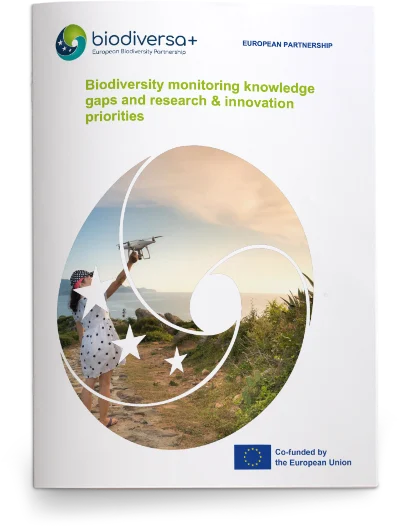“Biodiversity monitoring knowledge gaps and research & innovation priorities”
Biodiversa+ aims to improve the quality, use, and harmonisation of biodiversity monitoring schemes to better assess trends and understand the links between biodiversity and key drivers of change. To support this goal, an expert workshop was held on 31 January 2022 to identify research and innovation (R&I) priorities and knowledge gaps related to:
- New tools, technologies, and approaches for monitoring
- Citizen involvement in monitoring activities
- The use of monitoring data in research and innovation
1. New Tools and Technologies
Experts identified strong potential in methods like eDNA, remote sensing, acoustic/image analysis, AI, and smart sensors. Key challenges include:
- Standardisation of methods and protocols
- Efficient data collection and processing
- Data quality assurance (FAIR principles)
- Scaling and applying tools to real-world needs, such as early warning systems or restoration monitoring
2. Citizen Science
Citizen Science offers significant potential but also faces hurdles. Key priorities include:
- Improving data quality and standardisation
- Co-designing projects with diverse communities
- Matching data collection to citizen motivation and policy needs
- Using technology to support validation and engagement
- Evaluating when and how Citizen Science adds the most value
3. Use of Monitoring Data
Experts emphasised the need to make better use of existing data to inform science and policy:
- Producing reliable biodiversity trends by addressing spatial and taxonomic gaps
- Combining data sources (e.g. standardised, Citizen Science, legacy data)
- Understanding biodiversity–driver relationships (e.g. climate, land use)
- Enhancing modelling, scenario building, and interdisciplinary approaches
Closing these gaps and addressing these priorities is essential to achieving European biodiversity targets, including those of the EU Biodiversity Strategy for 2030. Strategic investments in tools, citizen involvement, and data integration will strengthen monitoring and support more effective conservation and restoration actions.
The content of this report fed the development of the BiodivMon research call.
